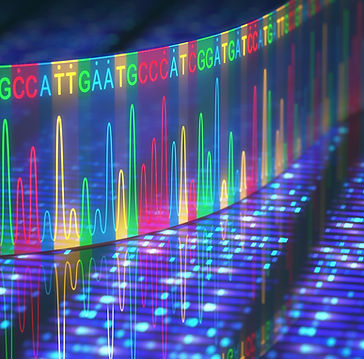
 |
|---|
Cancer Genomic Testing: Empowering Cancer Treatment, Early Detection, and Prevention
Genomic testing provides valuable medical insights to help doctors develop optimal cancer treatment and effective cancer prevention plans.
Cancer is a complex disease, characterized by the uncontrolled growth and spread of abnormal cells in the body. It can occur in any part of the body and can have different causes, ranging from genetic mutations to environmental factors. Cancer is a leading cause of death worldwide, with an estimated 10 million deaths in 2020. However, with advances in cancer genomics testing, we have the potential to transform cancer prevention and early detection.
Cancer genomics testing is a powerful tool that analyzes the DNA of cancer cells to identify genetic mutations that may be driving the growth of the tumor. By understanding the genetic makeup of a tumor, doctors can tailor treatment plans to the specific characteristics of each patient's cancer, improving outcomes and reducing side effects.


But cancer genomics testing is not just valuable in treatment. It is also a powerful tool for cancer prevention and early detection. By analyzing the DNA of healthy cells, doctors can identify genetic mutations that may increase the risk of developing cancer. Armed with this information, patients and their doctors can take steps to reduce the risk of cancer, such as through lifestyle changes or increased monitoring.


All genomics analysis results will be validated and certified by American medical geneticists/pathologists. In addition, these data will be combined with medical profile revision to generate a comprehensive report.
Here are some of the key benefits of cancer genomics testing:
-
Personalized treatment plans: Cancer genomics testing can identify specific genetic mutations in a tumor, which can help doctors design personalized treatment plans that target those mutations. This can lead to better outcomes and fewer side effects.
-
Early detection: By analyzing the DNA of healthy cells, doctors can identify genetic mutations that increase the risk of cancer. This can lead to earlier detection of cancer, when it is more treatable.
-
Improved accuracy: Cancer genomics testing can help doctors distinguish between different types of cancer, which can be difficult to do with traditional methods. This can improve the accuracy of diagnosis and treatment.
-
Better understanding of cancer: By analyzing the DNA of tumors, cancer genomics testing can help researchers better understand the underlying mechanisms of cancer. This can lead to the development of new treatments and prevention strategies.
-
Reduced healthcare costs: By identifying the most effective treatment plan for a patient, cancer genomics testing can reduce healthcare costs by minimizing the need for ineffective treatments or hospitalizations.
If you or a loved one has been diagnosed with cancer, or if you have a family history of cancer, talk to your doctor about cancer genomics testing. It could provide valuable information that can improve your treatment options, reduce your risk of cancer, and ultimately, save your life.